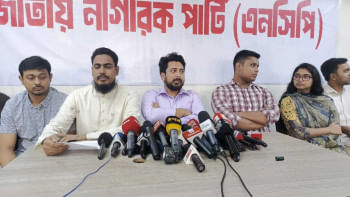ICC Chairman Manohar wants end to 'bullying' Big Three clout

ICC Chairman Shashank Manohar, who is also the BCCI president, has criticised the imbalance of power within cricket's governing body because of the constitutional revamp last year, which gave the boards of India, England and Australia greater authority and a larger share of the revenue.
Manohar called the revamp "bullying", and said there were several faults in the ICC that he hoped to rectify during his term as chairman, which ends in June 2016.
"I don't agree with the three major countries bullying the ICC," Manohar told the Hindu. "That's my personal view, because as I have always said, an institution is bigger than individuals. You cannot guarantee which individual will occupy the top position in either of these countries. And, the ICC constitution, as it stands today, says that in all the major committees of the ICC, these three countries will be automatically there. So all the financial and commercial aspects and the executive committee will be controlled by the representatives of these three countries, which according to me is wrong. You should have the best man, whether he comes from Zimbabwe, or West Indies, or even from an associate or affiliate to work on a committee, who will promote the interests of the ICC."
Manohar was in Dubai last week to get acquainted with the ICC's functioning after the BCCI named him its representative to replace N Srinivasan, who had become the inaugural chairman last July. Srinivasan had been the main architect behind the Big Three plan, which was passed by the ICC board last February. When asked whether he would propose to other ICC board members to revoke the decisions taken last year, Manohar said he was speaking in his individual capacity and not as ICC. "I don't agree with that in principle. I am talking about myself. I don't know what will happen in the future."
Under the new governance structure, while the BCCI president became ICC chairman, the Cricket Australia chairman would head the five-member executive committee, and the ECB president would continue to head the ICC's Finance and Commercial Affairs (F&CA) committee, making sure the three boards had control over major policy decisions.
On January 9 last year, an F&CA committee "working group" comprising Srinivasan, Giles Clarke and Wally Edwards had presented the draft of their radical revamp to the rest of the ICC board. Central to the draft was the revenue distribution model, which was reworked to give the BCCI, ECB and CA a graded percentage share of ICC revenue, with a larger chunk going to these three boards than the rest.
In an interview with ESPNcricinfo, Srinivasan had said it was wrong to see the revamp as a takeover of the ICC by the BCCI, ECB and CA. "If I had to sum it up I will say the proposal gives financial stability to nations who play cricket," Srinivasan had said.
Manohar, however, was opposed to the revenue-sharing formula. "I don't agree with the revenue-sharing formula, because it's nice to say that India (BCCI) will get 22% of the total revenue of the ICC, but you cannot make the poor poorer and the rich richer, only because you have the clout. The ICC runs cricket throughout the world.
"Secondly there is another angle to it which nobody has thought of. India generates money because the other countries come and play in India. If you do not have a fierce competition, the broadcasters are not going to pay you and the sponsors are not going to sponsor your events. So whatever you generate through bilateral series is because there are good teams playing against you. If all teams are of the standards of the low placed ninth and tenth team and India is a good side, who is going to pay you; what interest would be left with the spectators to watch a game, if it's a one-sided game always. So if you reduce their corpus, their development is going to be hampered and ICC has to think from that point of view."
Manohar also expressed dissatisfaction at the possibility of conflict of interest because of the dual roles held by officials - at the ICC and at their home board. "According to me there is a conflict now at the ICC level, which I have to sort out. Under the present ICC constitution, the chairmanship is offered to the representative of the BCCI. Under the ICC constitution, after the annual conference, there is going to be an election and the person who is elected the chairman will continue only till the time he continues to be the representative of his country.
"So tomorrow here could be a scenario, wherein 'A' person is elected the chairman and after 10 days he is removed by his board, 'B' would take over as the chairman, and after four months that person is removed, 'C' would take over as chairman. When people vote, they vote for an individual; they don't vote for a member board. It's the competence of a person to lead the ICC is important, and keeping that in mind, people vote for him. According to me that clause is also a bad clause.
"Secondly when I am at the ICC as a BCCI representative, it's my paramount duty to protect the interests of the BCCI; then how can I protect the interests of the ICC, sitting as its chairman? If there is a conflict between the interest of the BCCI and the ICC, I will have to protect the interest of the BCCI. Then I am failing in my duty, sitting there as chairman of the ICC and not protecting its interests.
"So according to me there are many flaws in the ICC constitution, which was amended, because earlier the president's post was occupied by a person who had nothing to do with any board. The first requirement was he had to resign from his home board from all positions; with the result that he was not attending the ICC meetings as a representative of a member board. David Morgan, [Sharad] Pawar, Alan Issac, they resigned from their offices to sit as ICC presidents. This is a unique situation which has been created because of the amendment which creates, according to me, a direct conflict."
Manohar said he had already raised all these issues with Clarke and other senior ranking ICC officials. "I have spoken about these issues to Giles Clarke (ECB) and he agreed with me."

 For all latest news, follow The Daily Star's Google News channel.
For all latest news, follow The Daily Star's Google News channel. 








Comments